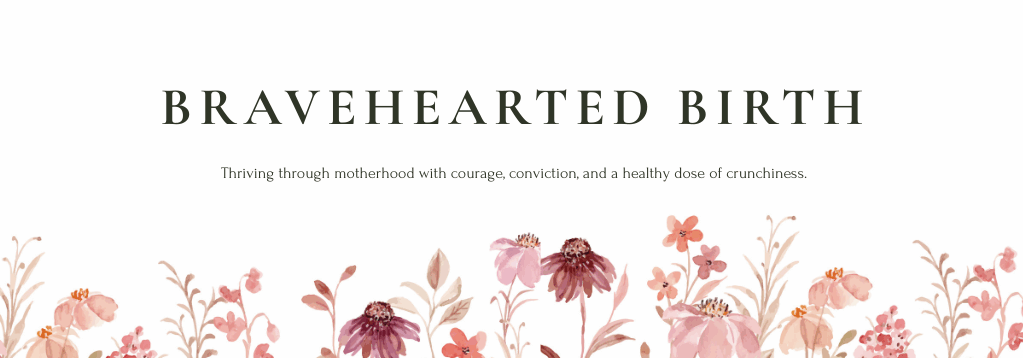
As moms, we look forward to the end of pregnancy and meeting the child we’ve been sheltering for so long. It’s a time of adjustment, but it’s supposed to be a joyful, peaceful time. But what happens when postpartum becomes foggy?
When do you speak to your doctor about postpartum depression? Are hormone swings normal? How does a first-time mom know how to bond with her baby?
What are the “baby blues?”
You may have heard that baby blues are normal after childbirth. Some mom report mood swings, irritability, anxiety, restlessness, or difficulty concentrating. Other women report feeling overwhelmed, having trouble sleeping, or decreased appetite.
What’s the difference between this and postpartum depression?
The key to baby blues is that they only last a few days or up to two weeks after birth. This is super common; one researcher estimated that up to 80% of new moms experience baby blues after giving birth.
The baby blues can feel kind of similar to hormonal mood swings like some of us have on our period – only more intense. After giving birth, we go through MASSIVE hormone shifts.

To put this into perspective, during pregnancy, the amount of estrogen and progesterone in your body is roughly equivalent to the amount you’d get if you were taking 100 birth control pills per day. These crazy high hormone levels come back to normal within 3 days postpartum.
One doctor calls it “the single largest sudden hormone change in the shortest amount of time for any human being, at any point of their life cycle.” She goes on to say that “it’s like PMS on steroids.”
With all those hormone shifts, it’s understandable to have some emotional moments. So give yourself some grace with the baby blues. You’re going through a lot of changes.
(Also, don’t let the baby blues scare you. They can cause emotional moments, but those early postpartum days can still be sweet).
By several days postpartum, however, or by two weeks after birth, your hormones are designed to regulate again. At that point, if you’re still having symptoms, especially if they’re severe, you may want to talk to your doctor.

Postpartum Depression
Postpartum depression symptoms are more severe and last longer than the baby blues.
Most of the time, symptoms start shortly after a mom gives birth. However, in other cases, postpartum depression can start before birth or even up to a year after birth. And stressors, such as grief, can trigger postpartum depression to start.
There are a lot of symptoms. However, postpartum depression can include all of these:
- Severe mood swings or feeling depressed, intense irritability, or anger
- Excessive crying
- Feeling distant from your baby, or having trouble bonding
- Withdrawing from family and friends
- Loss of appetite or binge eating
- Oversleeping or not being able to sleep
- Overwhelming lethergy or fatigue
- Not being interested or finding pleasure in things you know you should enjoy
- Fear of being a bad mother
- Consistently feeling worthless, ashamed, guilty, or inadequate
- Inability to concentrate
- Restlessness, anxiety, or panic attacks
- Thoughts of harming yourself or baby or suicidality
If you are having thoughts of self-harm or concerned that you will harm your baby, please get help right away. You and your baby are precious, and both of your lives are worth fighting through postpartum depression.
What to Expect from Your Doctor’s Office
If you reach out to your doctor’s office, you should know that the vast majority of healthcare professionals will respond to you with dignity and compassion. You should not feel shamed (or even brushed off) by your doctor’s office. If you do, find another doctor.
Your doctor may recommend lifestyle changes and medication. Feel free to ask questions, especially if you are breastfeeding, to make sure any medication is safe for both your and baby.

How the Gospel is Good News During Postpartum Depression
Looking back over my postpartum experience, I now realize that I had postpartum depression after I had my son. I didn’t want to take the medication route (my postpartum depression was triggered by a major loss, and I felt that for me, medication would mask the grieving that needed to happen).
It was really, really hard. But now, almost a year later, I’m doing much better.
One thing that I found was that I had to preach the Gospel to myself. Most days, I felt numb and broken at the same time. I wanted to care about reading my Bible, and I wanted to feel in love with God, but I didn’t. And I didn’t know how to fix it.
Even on the days that I couldn’t (or wouldn’t) spend time with God, I had to remind myself of the basic truth of the Gospel.
God made me for a purpose.
The curse of sin causes brokenness, and God is not the author of death.
Jesus submitted himself to death so that I could have the hope of eternal life.
One day, because of Jesus’ death, God will wipe away every tear from my eyes, and everything will be as it was designed to be.
Your journey will look different than mine. Sometimes God uses doctors, and medicine, and science to help heal postpartum depression. And that’s okay.
My reliance on the Gospel was (and still is) far from perfect. But I am God’s child, and He kept me. And I’m confident that He will keep you too.
Just like you would give your own life for your child, God has already, unhesitatingly given His life for you. He has promised to keep His own children, and if you have placed your trust in Him, you are His precious daughter.
Love,
Lynette
Photo Credits: Felipe Cespedes on Pexels.com, Marta Branco on Pexels.com, Dương Nhân on Pexels.com, Jure Širić on Pexels.com
